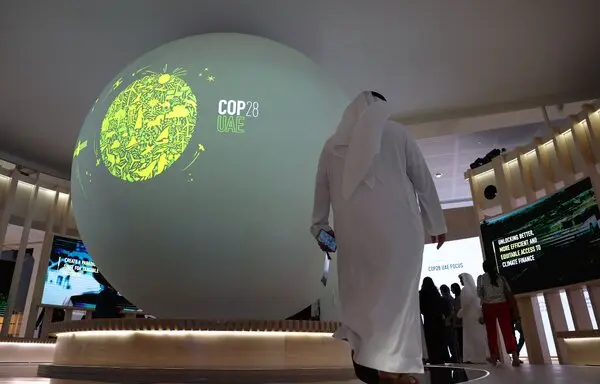October 8, 2025
The UAE’s latest national headlines highlight a strategic push toward climate action, security resilience, and business expansion. Officials reaffirm the country’s focus on sustainability and regional stability amid global economic shifts.

In recent weeks, the United Arab Emirates (UAE) has amplified its commitment to climate action, security partnerships, and business growth, reflecting a cohesive national agenda that aligns sustainability with long-term economic resilience. Government officials, corporate leaders, and regional policymakers have used media briefings and public events to underscore how these three pillars — environment, safety, and economy — will shape the UAE’s future trajectory.
The UAE continues to emerge as a regional climate leader, especially in the aftermath of hosting COP28 in Dubai. The country reaffirmed its dedication to achieving net-zero emissions by 2050, emphasizing renewable energy investment and innovation in sustainable technologies.
Dr. Sultan Al Jaber, UAE Minister of Industry and Advanced Technology and COP28 President, reiterated that climate solutions must also drive economic opportunity:
“The UAE sees the energy transition not as a burden but as an engine for new industries, green jobs, and sustainable growth.”
National projects like Masdar City and the Abu Dhabi Hydrogen Alliance are expanding to integrate solar, wind, and green hydrogen into the energy mix. These efforts are supported by partnerships with the European Union, Japan, and the United States, strengthening the UAE’s role as a global hub for renewable energy investment.
Environmental analysts also point out that the UAE’s push toward climate innovation helps position it as a model for sustainable urban development in the Middle East — blending advanced infrastructure with environmental stewardship.
Alongside sustainability, security and defense remain central to the UAE’s national policy. With ongoing instability in parts of the region, the UAE has reinforced its partnerships with global allies — including the United States, France, and the United Kingdom — to enhance intelligence sharing, maritime security, and counterterrorism coordination.
Recent reports highlight expanded joint exercises between the UAE Armed Forces and NATO members, aimed at strengthening cyber defense, border protection, and counter-drone systems. A senior UAE defense official stated:
“Our vision of security goes beyond borders — it includes digital safety, food resilience, and energy independence.”
The UAE’s comprehensive approach also extends to climate security, acknowledging that environmental risks such as water scarcity and rising temperatures can trigger humanitarian and geopolitical challenges.
Experts argue that this multi-layered approach distinguishes the UAE’s model — combining traditional defense measures with sustainability-driven stability.
The UAE’s business landscape continues to flourish as the government rolls out new tax reforms, trade agreements, and digital economy frameworks to attract global investors. Recent figures from the Federal Tax Authority show that over 640,000 businesses have registered for corporate tax since its 2024 implementation, reflecting rapid economic formalization.
Meanwhile, Dubai International Financial Centre (DIFC) and Abu Dhabi Global Market (ADGM) reported record foreign direct investment (FDI) inflows in 2025, particularly in fintech, AI, and renewable sectors.
Officials from the Ministry of Economy also announced new bilateral trade initiatives with India, the UK, and South Korea, aimed at accelerating the UAE’s non-oil GDP growth and expanding global partnerships.
“The UAE’s diversification strategy is working — it’s building one of the most future-ready economies in the world,” said economist Lina Al-Hosani.
Analysts view the UAE’s current focus on climate, security, and business as interdependent rather than separate. Climate initiatives enhance economic competitiveness; secure borders protect investments; and business growth funds sustainable innovation.
This integrated model supports the UAE Centennial 2071 vision, which aims to make the Emirates one of the most advanced, peaceful, and sustainable nations globally.
From energy innovation to diplomatic outreach and financial modernization, the UAE’s multi-dimensional strategy illustrates a nation preparing for a future defined by balance — between progress and protection, prosperity and sustainability.
As global challenges evolve, the UAE’s actions in 2025 underscore its growing influence not only in the Middle East but also across international forums where climate, security, and business converge.